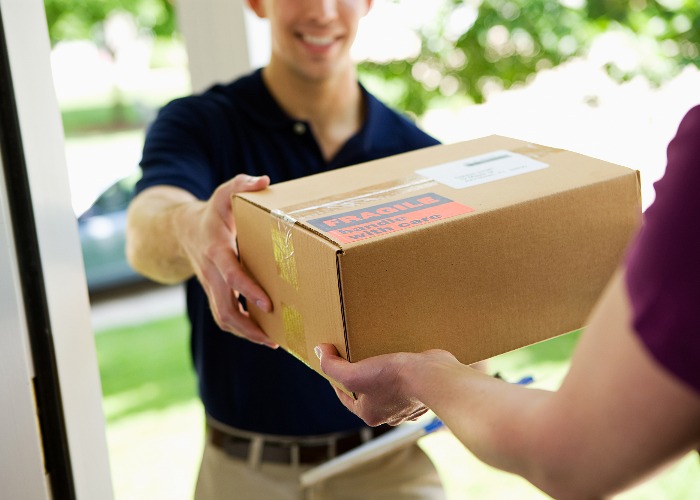Mobile phone delivery scam: what to do if you’re targeted

There’s a new scam where stolen details are being used to buy items in someone else’s name – before a scammer tries to get you to sign for it, then comes back to collect it. Here’s how to stay safe.
There’s a new scam doing the rounds involving criminals trying to trick people into giving them high-value items such as an iPhone that has been ordered using the victim’s details.
With this scam, criminals order a product to your address and then attempt to trick you into signing for it then handing over the package.
Fraud numbers rocket: the 7 scams you need to watch out for
Usually, this involves a courier turning up at your door shortly after the package is delivered, claiming it was deliver by mistake.
If the scammer gets hold of the package, they can profit by selling the product – at your expense.
My dad just had an iPhone delivered to his house by uk mail which he hadn’t ordered. 10 mins later this guy in DPD uniform came to the door saying they made a mistake and needed the phone back. We call the police and he left. The police arrived and said this is happening a lot in
— Mark J Bunting 🔶 SOD’EM 48% 👍 (@Poorboy55) August 20, 2019
How to stay safe
If you receive a package you cannot remember ordering, do not hand it over if a courier requests it.
You should check their credentials and call the company they represent to check if they are legitimate, and potentially call the police.
The next step would be to contact the retailer as soon as you can to arrange for the package to be sent back.
If you are targeted by this scam, it’s a good idea to tell your bank as your details could be compromised and you may be a victim of identity theft.
Identity theft: what's your worth on the dark web?
Protect yourself against identity theft
If you want to protect yourself against identity fraud, Action Fraud recommends:
- Shredding anything with your name, address or financial details before throwing it away;
- Not revealing any security information such as your password, login details or account numbers if you get an unsolicited email or call;
- Calling your bank on an official number if you get an unsolicited call;
- Checking your statements regularly and reporting anything suspicious;
- Putting your bills and financial details in a safe place out of view;
- Contacting your bank if paper statements don’t arrive (if you’re expecting them);
- Redirecting your post via Royal Mail for at least a year if you move;
- Using a credit report checking service to alert you to any key changes on your credit file
You should also contact Action Fraud if you suspect you’re a victim of identity fraud.
Online safety: avoid phishing, identity theft, hacking and other scams
Comments
Be the first to comment
Do you want to comment on this article? You need to be signed in for this feature